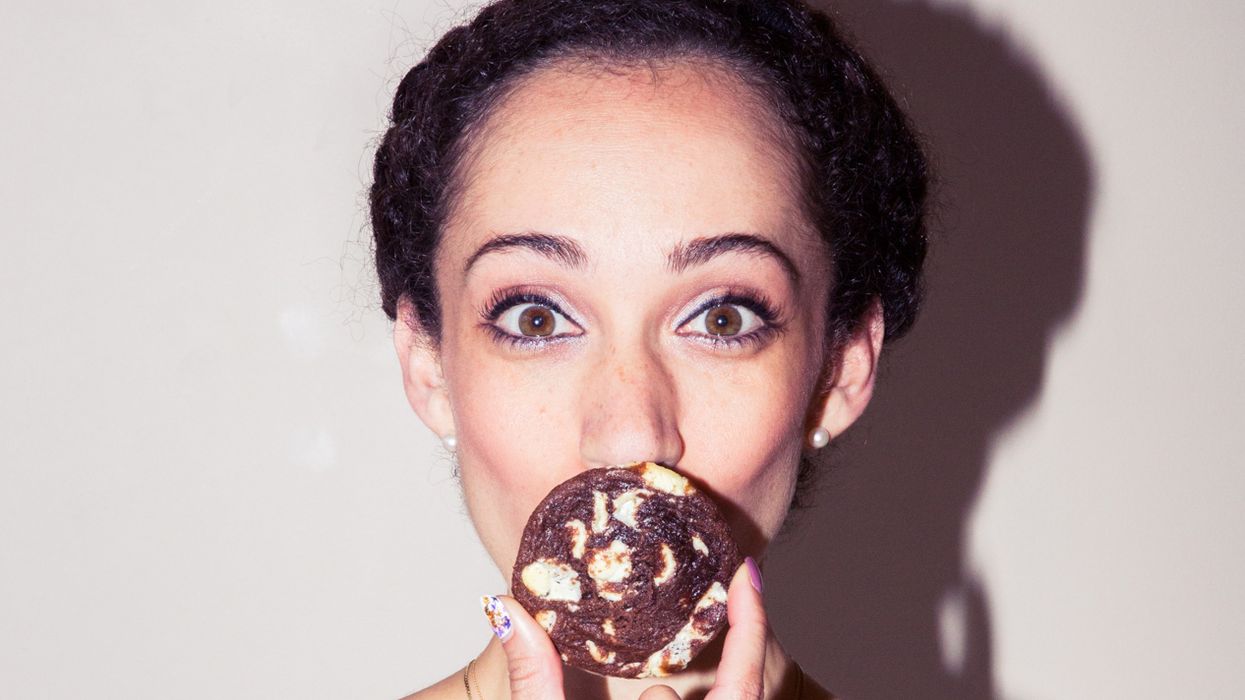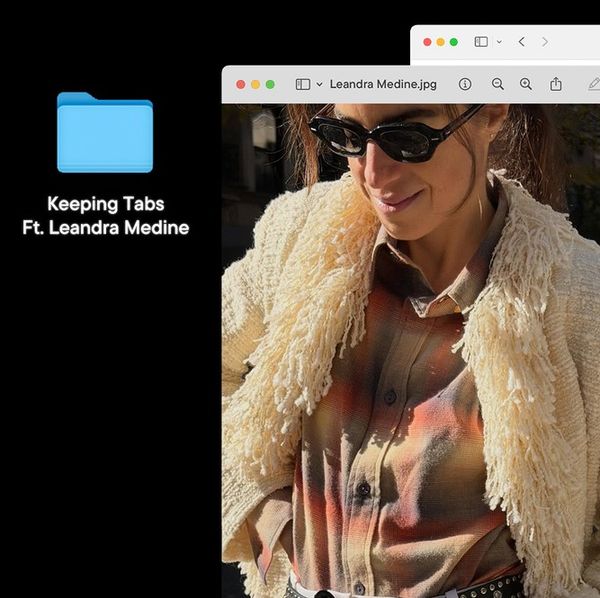Wellness
5 Things in Your Fridge That Can Help Ease Your Anxiety
Could chocolate really make you happier?

24 January, 2020
10 November, 2021
It does bear repeating that nowadays life is exponentially stressful and anxiety-ridden. Impending deadlines, pressure to make every moment worthy of an Instagram post...you get where we’re going with this. So yes, we can blame social media for that in part (amongst other things), but, plot twist, we can also blame the food we consume. (Before we go on, let us preface by saying this doesn’t apply to everyone—mental health is no joke, and you should consult your doctor before trying anything new—but as we grow to learn more about it, a direct correlation between food and mood is becoming more clear.) “It’s hard to believe that your diet and gut health are so closely linked to mood and mental health, but it is,” gastroenterologist and founder of TULA Skincare, Dr. Roshini Raj explains. “Recently there has been fascinating research showing that taking probiotics, which balance the bacteria in your gut, may also help you better handle stress, improve your mood, and may even help cope with anxiety or depression,” she continues.
So because we’re at a stage where we think simple life changes are all it takes to change our state of mind and health, we’re swapping out the things in our fridge and pantry that could be bringing us down for things that can give us more energy and release uplifting hormones like serotonin. We asked Dr. Raj, as well as nutritionist and founder of Nutritious Life Keri Glassman, what foods promote good moods, and which to avoid.
So because we’re at a stage where we think simple life changes are all it takes to change our state of mind and health, we’re swapping out the things in our fridge and pantry that could be bringing us down for things that can give us more energy and release uplifting hormones like serotonin. We asked Dr. Raj, as well as nutritionist and founder of Nutritious Life Keri Glassman, what foods promote good moods, and which to avoid.
It Starts in the Gut
“One of the major reasons diet and the gut are linked to mental health is because the digestive tract is where the majority of the body’s serotonin is made. Serotonin is the very important chemical responsible for mood, social behavior, appetite, and digestion.
“Being a gastroenterologist, I’ve seen the incredible effects probiotics have had on my patients’ health and lives. I’ve witnessed transformations in digestive health, mood, skin health, which all lead to overall well-being and confidence.”
Supplements That Help
“Probiotics are essentially healthy bacteria with anti-inflammatory (or balancing) properties that affect the gut in a positive way. These anti-inflammatory properties also help decrease stress signals in the body and help increase serotonin levels, which leads to an overall healthier and happier you. I’m such a probiotics advocate that I’ve been developing a special supplement which combines probiotics with other skin-loving ingredients,” insists Dr. Raj.
Good Mood Foods
Keri Glassman recommends eating oats, as they “contain tryptophan, which, when consumed in carbs, can help increase the production of serotonin.” She also loves dark chocolate that “triggers endorphins, which creates a positive feeling in the body,” and “spinach that is filled with antioxidants, which protect the body from harmful free radicals. It also contains folic acid, which has been shown to decrease depression.” But her number one is water: “Staying hydrated helps maintain the body’s fluid balance, making you less irritable. Important for all functions in [the] body, especially the conversion of food into energy.”
Foods to Avoid
“There are certainly foods which I would avoid,” says Dr. Raj. “At the top of my list is sugar, alcohol, and caffeine. High blood sugar levels have been linked with accentuating the symptoms of mood disorders. The sugar high and then the crash is something to avoid if you’re dealing with mental health or mood issues.”
“Depression and alcohol are very closely linked. Needless to say, alcohol is a depressant, which can also exacerbate symptoms of depression and anxiety,” she recommends. As for caffeine, “while moderate caffeine intake isn’t bad, too much caffeine can trigger symptoms of anxiety and can have a disruptive effect on sleep. Healthy sleep habits are also important for mental health, and increased caffeine intake can get in the way.”
[Editor’s Note: As ever, we are not doctors or medical know-it-alls. And everybody is different, so make sure to check with a doctor before trying anything new.]
Want more stories like this?
How to Make Wellness a Priority at Work
Do You Need an Ingestible Beauty Routine?
3 Calming, Stress-Relieving Tricks You Can Do Anywhere




